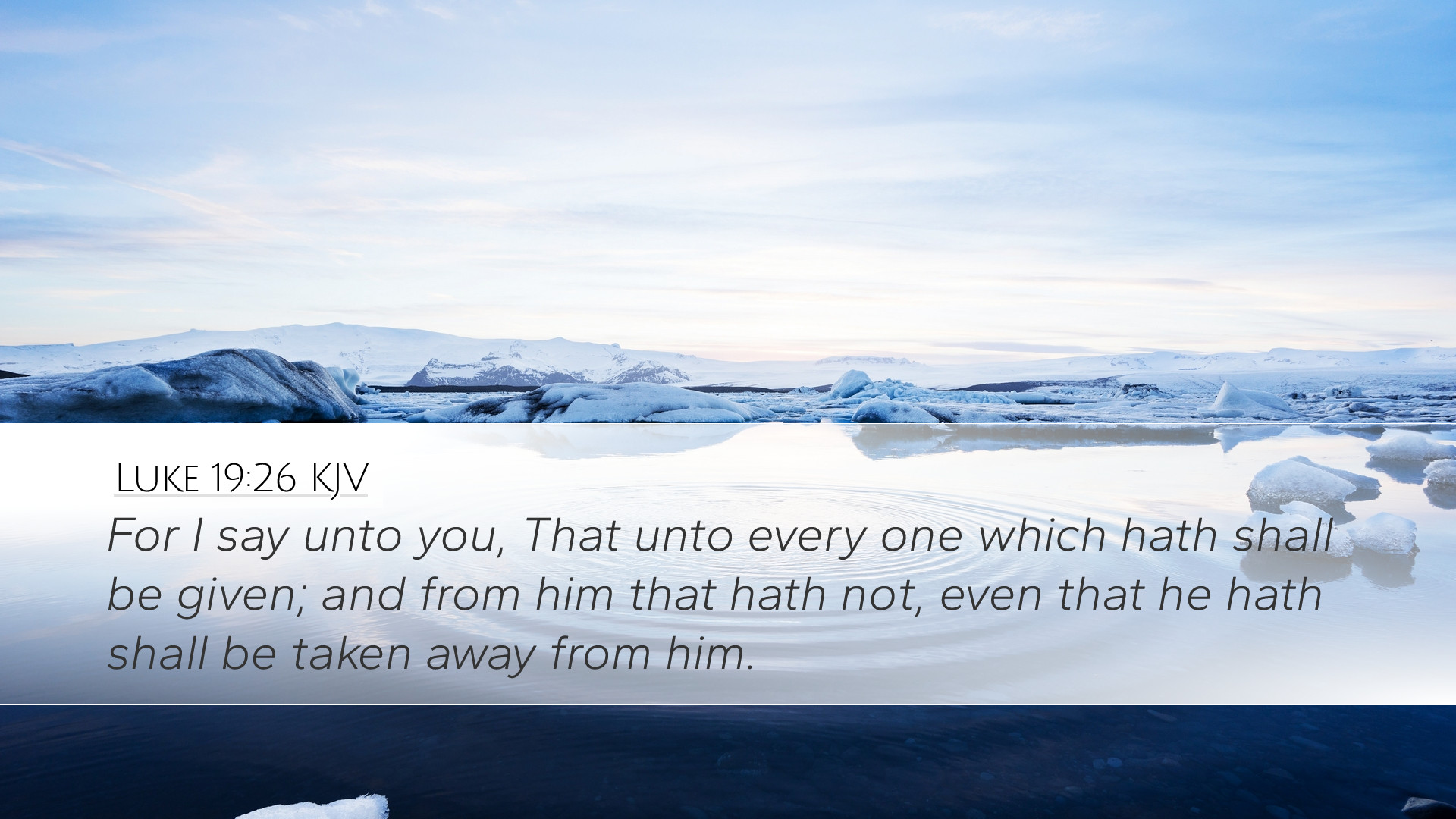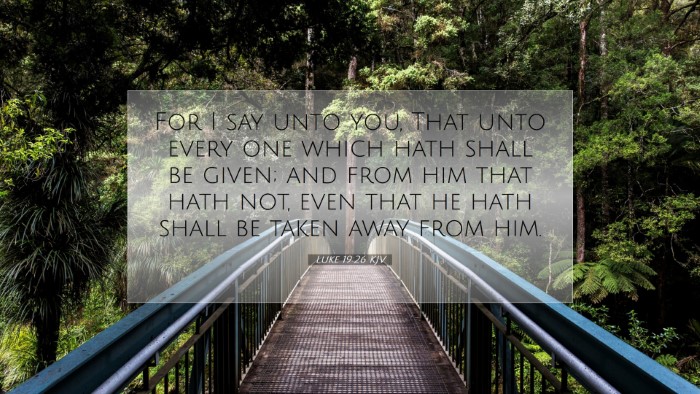Old Testament
Genesis Exodus Leviticus Numbers Deuteronomy Joshua Judges Ruth 1 Samuel 2 Samuel 1 Kings 2 Kings 1 Chronicles 2 Chronicles Ezra Nehemiah Esther Job Psalms Proverbs Ecclesiastes Song of Solomon Isaiah Jeremiah Lamentations Ezekiel Daniel Hosea Joel Amos Obadiah Jonah Micah Nahum Habakkuk Zephaniah Haggai Zechariah MalachiVerse
Luke 19:1 Luke 19:2 Luke 19:3 Luke 19:4 Luke 19:5 Luke 19:6 Luke 19:7 Luke 19:8 Luke 19:9 Luke 19:10 Luke 19:11 Luke 19:12 Luke 19:13 Luke 19:14 Luke 19:15 Luke 19:16 Luke 19:17 Luke 19:18 Luke 19:19 Luke 19:20 Luke 19:21 Luke 19:22 Luke 19:23 Luke 19:24 Luke 19:25 Luke 19:26 Luke 19:27 Luke 19:28 Luke 19:29 Luke 19:30 Luke 19:31 Luke 19:32 Luke 19:33 Luke 19:34 Luke 19:35 Luke 19:36 Luke 19:37 Luke 19:38 Luke 19:39 Luke 19:40 Luke 19:41 Luke 19:42 Luke 19:43 Luke 19:44 Luke 19:45 Luke 19:46 Luke 19:47 Luke 19:48

